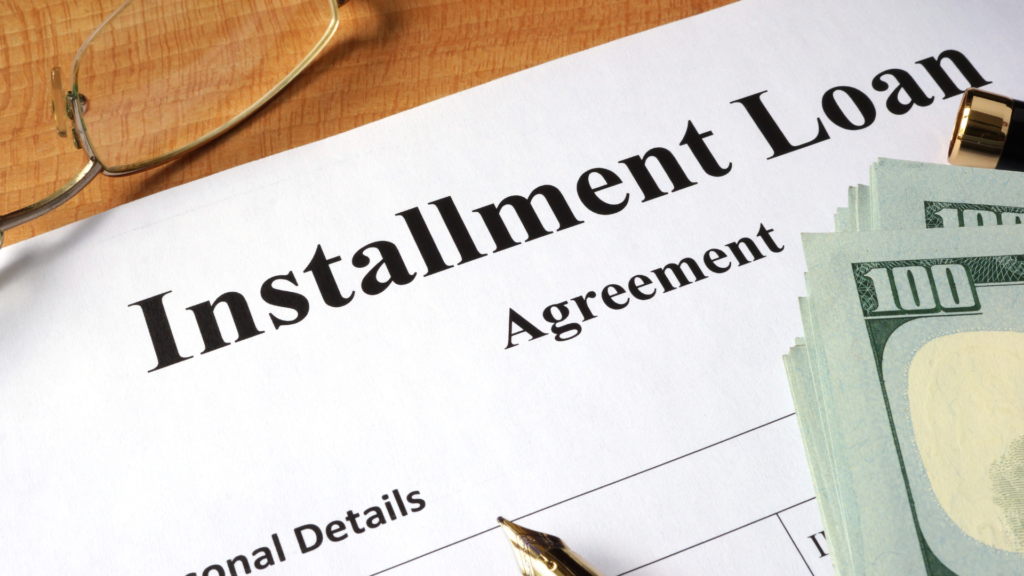Do we ever find ourselves regretting a financial decision? Maybe we splurged on something and now wish we had saved that money instead. Or we invested in a stock that didn’t pan out how we hoped it would. Whatever the case, making smarter financial decisions is crucial for securing our future and achieving our goals. In this blog post, we’ll explore some tips and tricks to help us make better choices regarding money management. So sit back, grab a cup of coffee, and let’s dive in!
Understanding Financial Decision-Making
When it comes to financial decision-making, there are a few key things to keep in mind. We need to have a clear understanding of our current financial situation. This means knowing how much money we have coming in and going out each month. When we have a firm grasp on our financial situation, we can begin exploring investment opportunities and other avenues for expanding our money.
It’s also important to be aware of the risks involved with any financial decision. Before making any major purchase or investment, be sure to do research and understand the possible risks and rewards. No one wants to make a financial mistake that could cost them dearly down the road.
Last but not least, don’t let emotion get in the way of our financial decisions. Getting caught up in the excitement of a new purchase or investment can be easy, but it’s probably not worth it in the long run if it doesn’t make financial sense. Stay disciplined and focused on our goals, and we’ll be more likely to make smart financial decisions that will ultimately pay off.
Identifying Financial Goals
When making financial decisions, it’s essential to have a clear understanding of our goals. Without a goal, it can be easy to splurge on unnecessary purchases or make impulsive decisions that don’t align with our long-term objectives. It’s essential to take a step back and assess what we hope to achieve. Are we looking to save for retirement? Build up an emergency fund? Pay off debt? Once we better understand our overarching goal, we can develop a plan of action.
From there, breaking down our goal into smaller, more manageable pieces is essential. For example, if we’re hoping to retire in 30 years, we need to start by saving as much money as possible. This might mean setting aside a certain percentage of our income each month or trimming expenses in other areas of our life so that we can funnel more money toward savings. While we can certainly handle our retirement planning on our own, tapping into the expertise of certified financial advisors can be incredibly valuable. These professionals can guide us on how much to save, in order to comfortably cover our healthcare costs once we have retired. They can also help us address critical risks like longevity (possibility of us outliving our retirement savings) and inflation that can threaten our retirement savings. With their expertise, they can guide us in developing a comprehensive financial plan that accounts for these factors and allows us to envision a secure future. Now, what is imperative is that we make a detailed and proper financial plan where we can plan out our retirement in ease.
Evaluating Risk and Reward
When making financial decisions, it’s crucial to carefully consider the potential risks and rewards. There are various strategies for building wealth, including infinite banking, dollar-cost averaging, and index fund investing. These methods can assist us in making informed choices about how to allocate our money. While there’s no foolproof method for predicting investment success or failure, conducting thorough research and evaluating the potential risks and rewards of each option can enhance our chances of making prudent financial decisions.
Some investment opportunities seem too good to be true. Before investing our hard-earned money, investigate the company or individual offering the opportunity. Get as much information as possible about their track record and any history of fraud or complaints. It’s also important to remember that even safe, low-risk investments can lose value over time. Inflation can eat away at the purchasing power of our savings, so it’s essential to invest in options that have the potential to grow over time.
No investment is without risk, but by evaluating our options, we can make smart choices about where to put our money.
Building Financial Knowledge
Improving our financial literacy is the first step toward making more informed choices with our money. One of the most excellent ways to do this is to read up on personal finance and investment ideas. There are tons of great books out there that can teach us about money and how to invest it wisely. A few of our favorites include The Millionaire Fastlane by MJ DeMarco, Rich Dad Poor Dad by Robert Kiyosaki, and The Intelligent Investor by Benjamin Graham. In addition to reading books, many great websites and blog posts can help us learn more about personal finance. A few of our favorites include Get Rich Slowly, Money Crashers, and Wise Bread.
Remember that we can also learn much by talking to knowledgeable people about personal finance. If we know anyone who is a successful investor or financial planner, pick their brain for advice.
Staying Disciplined and Consistent
Decisions about money should be made with discipline and consistency. This entails giving careful consideration to every purchase, no matter how small. Of course, this is easier said than done. We live in a world of instant gratification, bombarded with ads and temptation at every turn. But if we learn to be patient and disciplined regarding our finances, we will be better off in the long run.
Here are some tips for staying disciplined and consistent with finances:
Set a Budget and Stick to It
This means knowing how much we can afford each month and sticking to that amount. Refrain from allowing ourselves any wiggle room – if we overspend one month, make up for it by cutting back the next month.
Make a List of Priorities
What are our financial goals? Do we want to save for retirement? Pay off our credit card debt? Build up an emergency fund? Once we know our priorities, we can focus on making decisions that will help us reach those goals.
Reduce Household Expenditures
Maintaining financial stability is crucial for peace of mind and security. One way to achieve this is by taking a proactive approach to cutting down on household expenses. It starts with a close look at what we’re spending on regularly and figuring out where we can cut it down. Setting up a budget and keeping track of expenses helps to see where our money is going and where we might be overspending on things we don’t really need. Simple changes, like cutting down on food waste, and being savvy about shopping for essentials, can make a big difference each month.
Also, being mindful of our energy consumption can have a significant impact on our electricity bills. Particularly during the colder winter months when heating expenses can quickly escalate, it’s beneficial to explore alternative options such as propane-powered appliances. These appliances offer efficient heating solutions, and companies like Blueox Energy Products and Services can provide the necessary fuel, making it easier to make the transition.
Furthermore, it’s also worth exploring different options for services, trying to negotiate better deals, and considering if we can tackle small repairs ourselves rather than calling in professionals. By staying aware of how we spend and actively looking for ways to save, we can keep our household finances in line with our bigger financial goals, giving us a sense of control and stability.
Avoid Impulse Purchases
Buying something on a whim can be tempting, but resist the urge! Impulse purchases often become things we don’t need or want, and they can quickly add up. Waiting a few days to purchase can help us consider whether something is necessary.
Automate Savings
Setting up automatic transfers from our checking to our savings account, can be a great way to ensure we are saving each month. This method takes the guesswork out of deciding how much to save – we can decide on an amount, set it up once, and then forget about it!
Spend Smartly and Shop from Sustainable Brands
Spending wisely and opting for sustainable brands not only help protect the environment but also offer us with financial benefits in the long term. Many companies, similar to ATMOS Financial (joinatmos.com), often provide reward programs or cashback incentives for customers who support eco-friendly practices.
By participating in these programs, we can earn cashback rewards on our purchases, which can be a valuable asset in managing our finances. Over time, these cashback rewards can accumulate and be utilized to cover our future expenses or contribute to savings goals. It’s a win-win situation where our conscious choices not only help the environment but also boost our finances.
Track Spending
We can see precisely where our money goes by keeping a monthly spending record. We might find that we’re spending more than we thought on specific items or that there are areas where we could cut back. Tracking our spending can help us identify these areas and make adjustments accordingly.
Staying disciplined and consistent with our financial decisions can be a challenge, but it is necessary to achieve our financial goals.
Start Making Smarter Financial Decisions for Long-Term Success
Making smart financial decisions is key to being successful with our finances. By taking the time to research, understand and plan out our finances, we can set ourselves up for long-term success. Learning to budget, save money and invest responsibly are all essential steps in achieving financial stability. It may take some time, but if we commit to it, we will be able to reap the rewards of smarter financial decisions for years to come.






